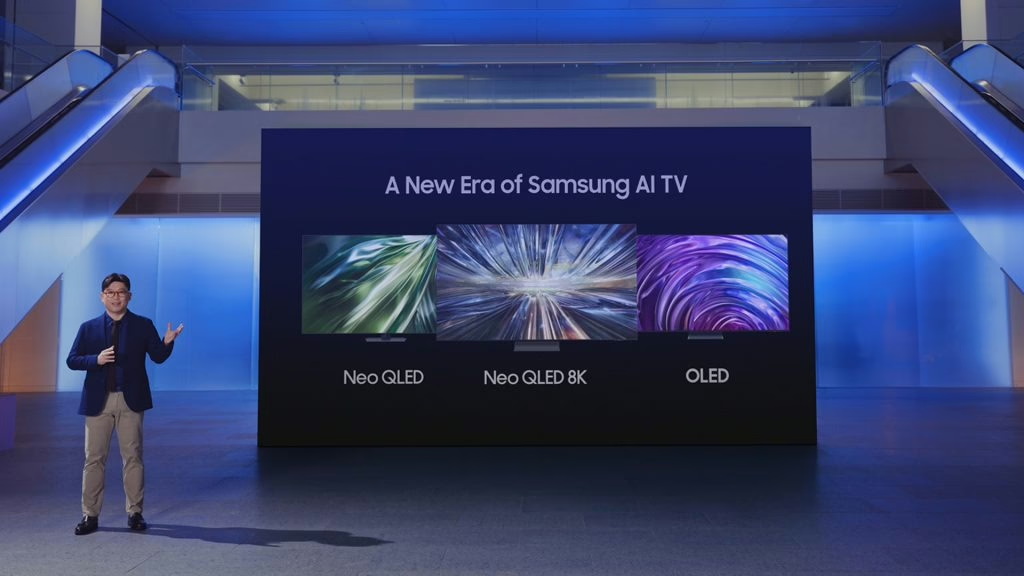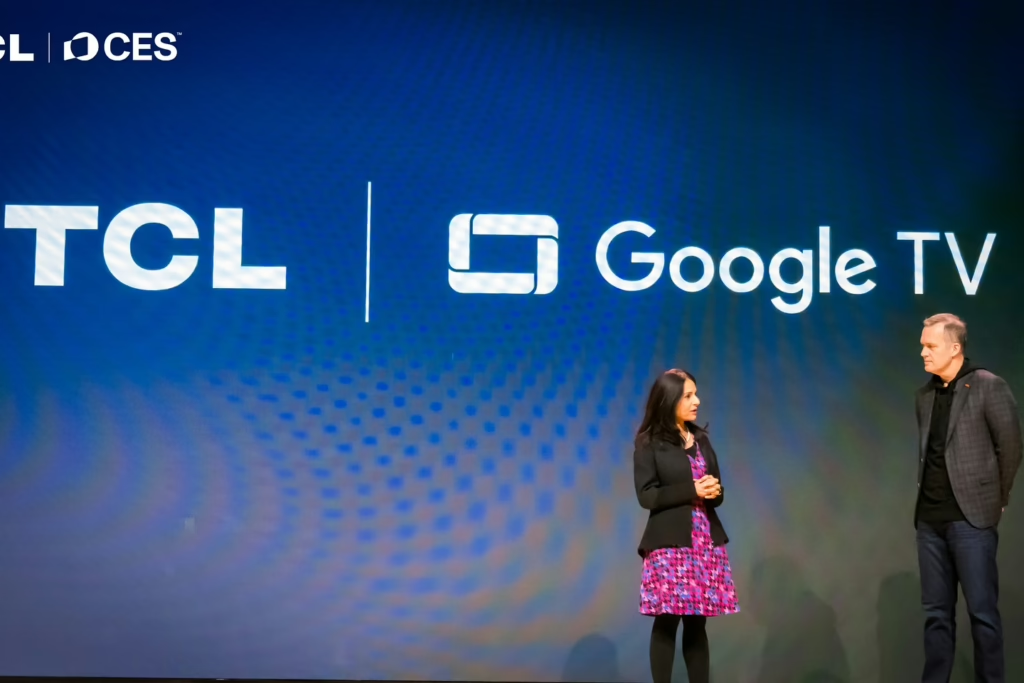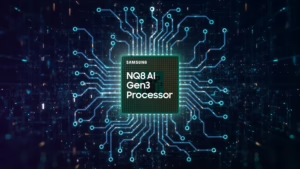At CES 2025, Samsung and Google targeted the fusion of entertainment, education, and smart home management. Both companies are competing against AI-integrated platforms like Amazon’s Alexa and Microsoft’s Copilot but is AI really what your average couch potato is missing in life? While both companies seek to transform TVs into intelligent hubs, Samsung emphasizes visual and audio optimization alongside adaptive interactivity, whereas Google prioritizes conversational AI, news summarization, and integration with broader digital ecosystems.
Samsung’s strategy focuses on enhancing the viewer’s interaction with its premium TV lineup through its Vision AI suite. This technology enables features like real-time translation, the identification of actors or products on screen, and the creation of personalized background images. Samsung also employs AI processors to optimize content by boosting colors, contrast, and audio for a more immersive experience. With Vision AI, Samsung positions its TVs as intelligent, interactive devices that adapt to users’ needs, marking a shift from passive consumption to active engagement. Additionally, Samsung is collaborating with major tech companies like Microsoft and Google to expand its AI capabilities.

Google, on the other hand, leverages its Gemini AI assistant to redefine the TV experience by emphasizing interactivity and content accessibility. Gemini AI introduces features such as the News Brief, which summarizes daily news from trusted online sources and YouTube videos, offering users quick, AI-generated overviews. Beyond news, Gemini enables conversational searches for shows, movies, and educational content, such as explaining complex topics in simple terms. Google also incorporates an ambient hub into its TVs, displaying personal widgets like photos and calendars, which can be activated by motion sensors or manual controls. While Gemini AI focuses on conversational and educational uses, it also enhances smart home integration and entertainment discovery. Google’s emphasis on voice-based interactions and contextual content aligns with its broader vision of making the TV a more interactive and multifunctional device.

The implications for user experience are substantial. With Gemini AI, televisions have the potential to serve as central hubs for smart home automation, providing users with a cohesive and efficient way to manage their connected devices. Enhanced content discovery and personalized recommendations also promise to reshape how users consume media. However, general social reactions have been mixed. While the features demonstrated at CES garnered praise, users on platforms like Reddit have expressed frustration with Gemini’s current functionality, citing issues such as inaccuracies and inefficiencies in basic tasks..
Privacy and security concerns further complicate Gemini AI’s integration. The always-on nature of AI-powered televisions necessitates constant data collection, raising questions about how this information is used and safeguarded. Cybersecurity risks are also a significant concern, as connected devices remain vulnerable to breaches that could compromise user data. These challenges demand robust encryption measures and transparent data practices to maintain consumer trust.
Samsung doesn’t have any advantage here but the public perception is probably less critical because the company has bright shiny objects, premium TVs, that distract you from the underlying concerns about AI software. It’s the hardware that people see and not the software. Google is facing a more fickle and critical audience of developers. But I know the boss has always harped on about TV’s becoming home hubs, but manybe he didn’t figure out the full implications of the intrusion into our lives. It’s annoying to think that I am being used by AI to determine its own value, and that I have no control over that. It’s also annoying to think that I have to talk to my TV. I just like it to talk to me and help me attain a state of vegetative zen. It’s annoying to be “always on.” Being a couch potato should be less work, not more.

